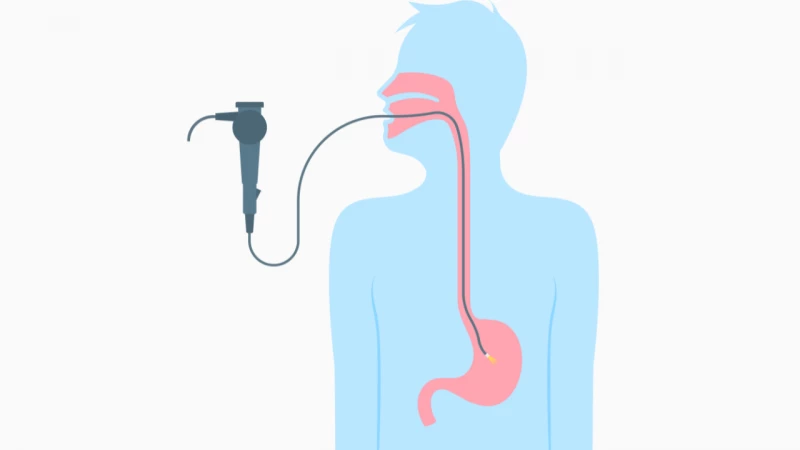Gastroscopy is a key diagnostic procedure for the digestive system. It is the primary method for direct examination of the esophagus, stomach, and duodenum, allowing real-time observation of these organs to detect diseases or rule out their presence.
Gastroscopy is performed on an empty stomach.
You must not consume:
Food — at least 6 hours before the procedure
Water or any liquids — at least 3 hours before the procedure For morning appointments, do not eat anything after midnight.
For afternoon appointments, follow your doctor’s specific instructions regarding food and water intake.
Food residue in the stomach during the procedure increases the risk of aspiration into the respiratory tract and can reduce the accuracy of the examination.
What to Expect Upon Arrival at VITA Hospital for Gastroscopy
You will first need to register and complete a few documents. A doctor and a nurse will review your medical history, including:
Your current complaints, past illnesses, and any accompanying conditions
- Previous laboratory tests, if available
- Medications you are currently taking
During the Gastroscopy
The following areas are examined in sequence:
- Esophagus
- Gastroesophageal junction
- Stomach (all parts)
- Duodenum
If necessary, photos may be taken or biopsies collected during the procedure.
After the Gastroscopy
The doctor will explain the results and document them in a special endoscopic report, which can be used for future consultations or follow-up tests.
What Conditions Can Be Diagnosed Through Gastroscopy?
Many digestive system disorders cause changes that can be identified through this method. These include:
1. Esophageal Conditions
- Gastroesophageal reflux disease (GERD)
- Barrett’s esophagus
- Hiatal hernia
- Achalasia
- Zenker’s diverticulum
- Esophageal carcinoma
2. Stomach Conditions
- Chronic gastritis (Helicobacter pylori-associated)
- Atrophic gastritis and other forms
- Gastric ulcer
- Gastric polyps
- Gastric carcinoma
3. Duodenal Conditions
- Duodenal ulcer
- Gluten enteropathy
- Duodenal polyps
Why Is a Preliminary Medical Consultation Necessary?
The doctor will assess whether gastroscopy is truly needed, when it can be performed, and whether anesthesia is required.
Blood tests will be ordered as part of the preparation.
The doctor will answer all your questions.
This procedure is covered by the National Health Insurance Fund (NHIF) under a clinical pathway.


 On this page, you can change your choices at any time after you have read and understood our
On this page, you can change your choices at any time after you have read and understood our